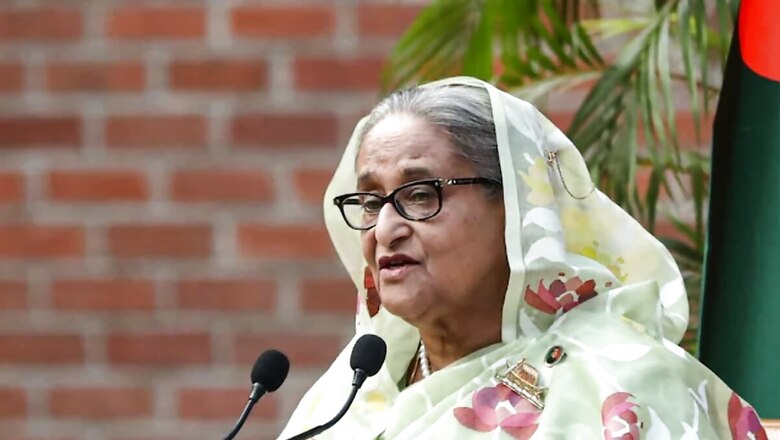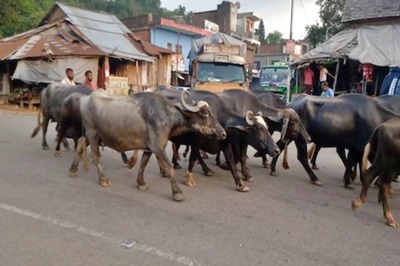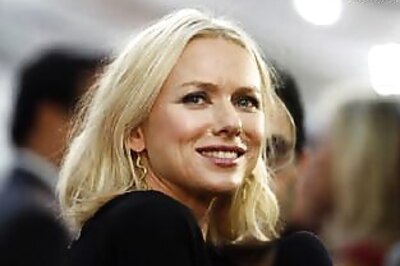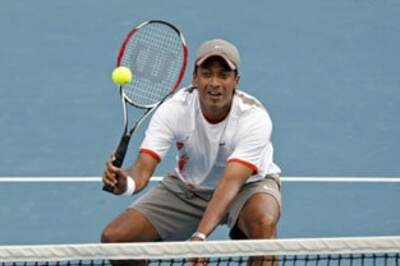
views
The big boys are at play. The Bangladesh government, under Nobel laureate Muhammad Yunus, is bound to be pulled apart by both the United States, seeking to establish a military base in South Asia, and the Chinese Communist Party (CCP), led by President Xi Jinping, which is seeking unquestioned dominance in Asia.
Jamaat-e-Islami and the Bangladesh National Party (BNP), led by Khaleda Zia, would play willing tools in the big boys’ power play, with Pakistan reduced to a lackey of minor variety.
There’s no denying that the globally dreaded Muslim Brotherhood would complicate the equation, bringing its Islamist-jihadist agenda to Bharat’s eastern frontiers. ‘Razakars’ could become a handy frontline private army in the hands of jihadist Muslim leadership internationally. There are already reports that these Razakars have taken over civic policing, acting as an occupational army of zealots.
With Sheikh Hasina’s government deposed last week, the Awami League purged, and a safe exit secured for her in a swift deal, Bharat faces a complex set of tasks as the army takes the reins in Bangladesh. Though an interim government headed by Muhammad Yunus and a battery of over a dozen advisors has taken charge, little appears to have changed on the ground, with the army still calling the shots.
Bangladesh’s underbelly has several layers that must be understood before Bharat drafts a plan to establish a working relationship with the new army-controlled, Yunus-fronted regime, given the Chinese, US, and Pakistani deep-state haggling for their pound of flesh. The ‘transitional’ Yunus regime gained legitimacy when the Democratic White House became the first to recognise the government. The State Department spokesperson conveyed that the US was “ready and looked forward” to working with Dhaka under Yunus’s leadership.
St Martin Island, also known as ‘Narikel Jinjira’ (Coconut Island) or ‘Daruchini Dweep’ (Cinnamon Island), off the Chittagong coast, may be eyed by the US to set up a military base to lord over both Bharat and its expansionist neighbour China. Direct US presence in the region may not be encouraged or welcomed by Bharat, given the strategic implications. Also, Bharat would get cut off virtually from the entire South East Asia in terms of trade, investment and services.
Church-driven ‘Project K’, to carve out an artificial autonomous region christened as ‘Kukiland’, will come to the forefront. The Church’s fancy idea of a separate Christian state encompasses parts of Bangladesh, Burma, and Bharat’s Manipur and Mizoram. This Christian agenda is expected to get the complete backing of the White House under President Joe Biden or his possible successor, Kamala Harris. Even if Donald Trump upstages the Democrats and gets elected in the November 2024 elections, this agenda may get going.
Even if general elections in Bangladesh were to be held anytime now, a pliable government in Dhaka is what Washington DC may expect to see in the saddle, given that the Awami League is virtually out of the power play.
On the other hand, China would try to get the Teesta River Project and other infrastructure ventures that provide Beijing proximity to India’s ‘chicken neck’ area. Weeks before the Hasina government fell, $2 billion worth of interest-free, concessional, commercial loans, apart from grants, were reportedly promised by China after a meeting that the Bangladeshi prime minister had with President Xi. On the face of it, funding infrastructure projects, either directly or through the Asian Infrastructure Investment Bank (AIIB), may not just be limited to an investment push. Instead, it will result in strategic issues for Bharat, giving China an advantage on its doorstep.
The third dimension to the Bangladesh story is the potential for a Jamaat-e-Islami resurgence, backed by Pakistan and part of the larger Muslim Brotherhood going berserk, to pose serious challenges to Bharat. Jamaat’s pursuit of the genocide of Hindus in Bangladesh has been widely reported, with CIHS meticulously documenting these grave crimes.
Jamaat-e-Islami, popular as the ‘congregation of Muslims’, is the largest Muslim formation founded in 1975. The Bangladesh Supreme Court banned it from political participation in 2013, citing its opposition to religious freedom and the practice of faith. Within its ambit were other organisations like Al-Badr, Al-Shams, and the self-styled Peace Committee, which formed the jihadist network. All these groups are pronouncedly anti-Hindu, Buddhist, and Christian in Bangladesh.
Evangelists and Islamist forces are expected to be on a collision course given their extremely divergent agendas for Bangladesh. The bid to carve out an autonomous Christian area by extreme evangelists with backing from the US may be at odds with the ‘theocratic’ ‘Islamist’ state that Jamaat may like to evolve Bangladesh into. Conflict between evangelists and Muslims may turn rough, as reported from several cities in European countries.
Contrarian geo-political forces in China, the US, and religious extremism donned by evangelists and Jamaat leave very little space for an open, flexible, and forward-thinking democratic agenda in Bangladesh. This is a heady mix in which India will have to tread carefully to safeguard its geo-political and strategic interests, apart from those of Hindus and people of Indian origin living in Bangladesh.
Rightly, Prime Minister Narendra Modi has emphasised that the Yunus government in Bangladesh must take steps to protect Hindus’ lives, properties, businesses, especially women, that have been targeted by jihadists.
For Bharat, dealing with the influx of Bangladeshis fleeing the violence-torn country may be a big priority, apart from safeguarding its people in Bangladesh.
Secondly, New Delhi may have to swerve through muddy waters that have become a playground for both the US and China, apart from minions like Pakistan.
Thirdly, recalibrating equations with Dhaka, given an array of forces from far-left extremists and religious jihadists to the military establishment, may pose a big challenge.
Fourthly, pursuing its agenda of peace, tranquillity and prosperity in South Asia may not be easy for Bharat.
Fifthly, smoothing relations with Bangladesh may turn tricky while former Prime Minister and senior Awami League leader Sheikh Hasina continues to be a respected state guest in Delhi.
Sixthly, working with like-minded stakeholders to ring in democracy with all forces intact may be a tall order.
Seventhly, the relatively tension-free Bangladesh border front may have to be guarded 365 days a year, round the clock, given that many in the country have lost hope and may opt to cross over for ‘greener pastures’ in India.
Eighthly, India may have to keenly watch for possible threats to its demographics in the Eastern states owing to political and social strife and economic downslide in Bangladesh.
A fresh beginning, with an open mind, has to be made for lasting relations between Bangladesh and India.
The author is Director & Chief Executive of non-partisan think tank, Centre for Integrated and Holistic Studies. Views expressed in the above piece are personal and solely those of the author. They do not necessarily reflect News18’s views.




















Comments
0 comment